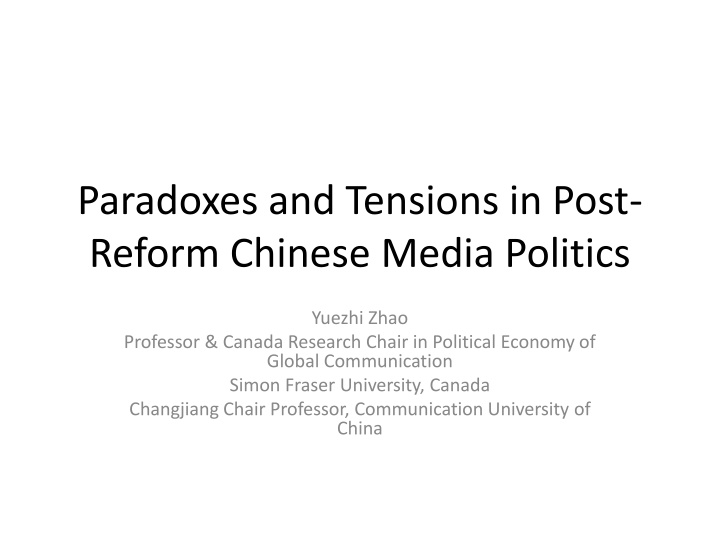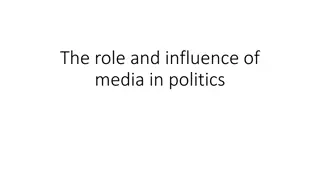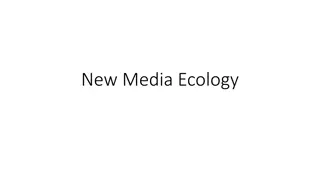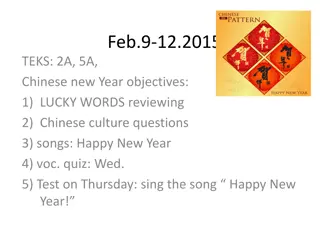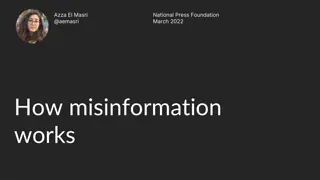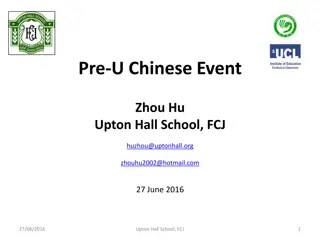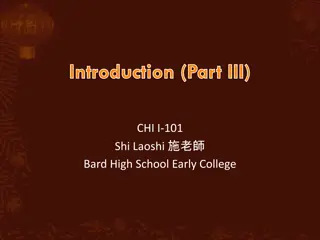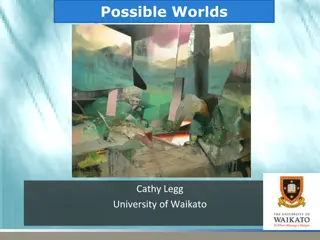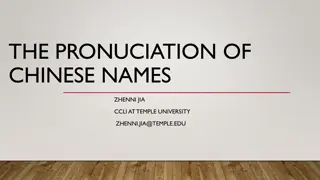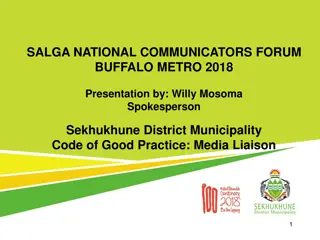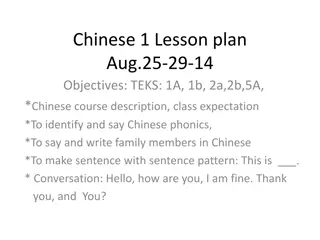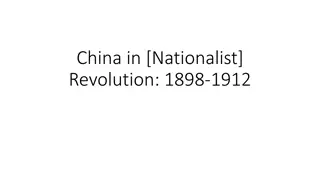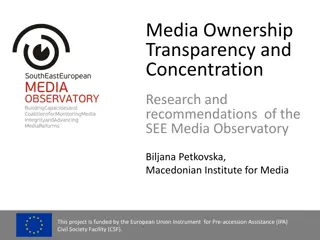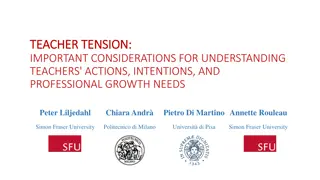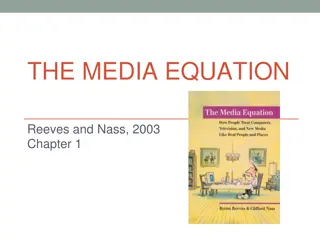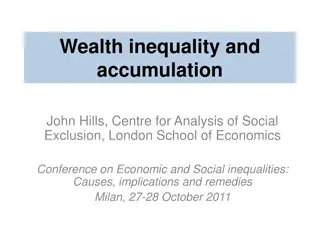Paradoxes and Tensions in Post-Reform Chinese Media Politics
This presentation delves into the complexities of Chinese media politics in the post-reform era, highlighting the unique dynamics between state control and commercialization. It explores the paradoxes and tensions within the Chinese media landscape, such as censorship fears of neo-Maoist influences and the contrasting narratives on socialism and market-oriented reforms. The evolving nature of Chinese media, marked by a balance between party directives and market forces, reflects a nuanced interplay shaping the industry.
Download Presentation

Please find below an Image/Link to download the presentation.
The content on the website is provided AS IS for your information and personal use only. It may not be sold, licensed, or shared on other websites without obtaining consent from the author.If you encounter any issues during the download, it is possible that the publisher has removed the file from their server.
You are allowed to download the files provided on this website for personal or commercial use, subject to the condition that they are used lawfully. All files are the property of their respective owners.
The content on the website is provided AS IS for your information and personal use only. It may not be sold, licensed, or shared on other websites without obtaining consent from the author.
E N D
Presentation Transcript
Paradoxes and Tensions in Post- Reform Chinese Media Politics Yuezhi Zhao Professor & Canada Research Chair in Political Economy of Global Communication Simon Fraser University, Canada Changjiang Chair Professor, Communication University of China
Although China is the most populous country in the BRICS, I have only asked for 5 minutes to make a few observations about Chinese media politics in this presentation. The theme of this conference is Mass Media after Post-Socialism; to the extent that China still has not officially abandoned socialism , I think it more appropriate to speak about post-reform China.
There is a noted abnormality in the post-reform Chinese political economy (vs the West and post socialist countries) : On the one hand: - The Chinese economy has become the second largest in the world and highly integrated with the global economy, so much so that Ferguson even called it Chimerica On the other hand: - Not only the CCP is still in charge and continues to push for market oriented reforms, - But also it has declared (once again!) in the just concluded 18thCongress that it would not follow the deviant path of changing its banner of socialism with Chinese characteristics
In the media field, the media has been dancing between the party line and bottom line during the past 30 years of reform . On the one hand, there has been a reinforced regime of state control; On the other hand, there has been - excessive commercialization and explosive growth of media markets; - aggressive promotion of new media technology: China now has the world s largest Internet population
Within this context, one notes many paradoxes and tensions in Chinese Media Politics, and I only have time to highlight the following three 1. Yes, there is censorship, but guess who is the CCP most afraid of? It s the neo-Maoists and its influential websites such as Utopia! This was most visible in the pre-18thCongress power struggles leading to the downfall of Bo Xilai in spring 2012
Although it is simplistic to speak of left and right in dichotomous terms, it seems that Deng s initial instruction to guard against the right, but primarily the left at the beginning of the reform period not only remains true, but also has become more relevant as leftist critiques of the negative social consequences of the reforms become more vocal
2. Yes, the new media elite claims to speak for the people and posits itself as the grassroots in a state vs society framework, but in China s cyberspace today, public intellectual has become a term of abuse, while the CCP has compelled mainstream journalists to go to the grassroots by going back to the Maoist tradition of mass line journalism and going against excessive commercialism and tabloid journalism
Clearly, the CCP and the rising liberal media and intellectual elite & its urban middle class netizen followers are competing for the hearts and minds of the Chinese population and it remains to be seen whether the liberal elite within the CCP and the media can be successful in pushing for a democratic breakthrough, i.e. (the end of one party-rule).
3. Yes, there has been a concerted effort to expand the Chinese media in the global realm in a quest for Chinese soft power , but there are tensions between reaching the Western elite and the global 99%, and between going out or going down (i.e., to reach China s lower social classes and allow them to speak out). To what extent can there be a China rise without the rise of China s lower social classes?
